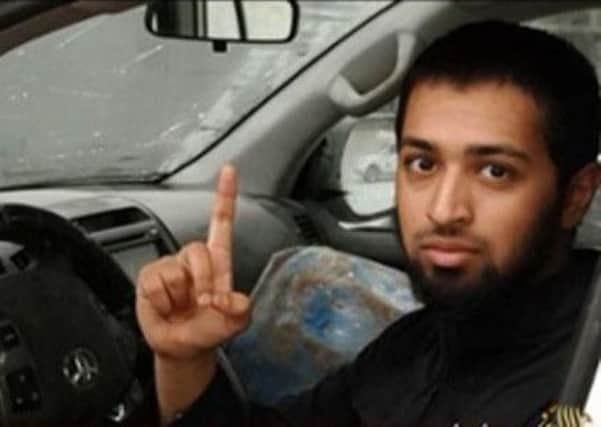Exclusive: Under-12s in Yorkshire at risk of radicalisation by extremists


Statistics obtained by The Yorkshire Post reveal that 247 people from the two areas were referred to the Government’s anti-radicalisation programme, Channel, in the year to April.
This is nearly treble the total of 85 from 2012/13, when the Channel scheme was introduced nationwide. Of last year’s total, 123 are under 18 and 14 are under 12 years old.
Advertisement
Hide AdAdvertisement
Hide AdSince the scheme, which is designed to protect the vulnerable from being drawn into terrorist activity, was launched in 2008, a total of 644 people have been referred from Yorkshire and the North East for guidance and support.
Of these, just under half, a total of 301, are under 18, including 31 children under the age of 12. The total number of under-12s referred for 2014/15 is nearly as high as all the previous years combined.
Channel is part of the Government’s wider Prevent strategy, launched nationally in 2007 to stop people being drawn into violent extremism. Recent high-profile cases where young British Muslims have apparently fled the UK to join IS have sparked renewed scrutiny of Prevent.
Talha Asmal, 17, from Dewsbury, is thought to have flown to Syria in March. Two months later he became Britain’s youngest ever suicide bomber after apparently blowing himself up in Iraq.
Advertisement
Hide AdAdvertisement
Hide AdDays after this, it emerged that 12 members of the Dawood family from Bradford, including nine children, had also travelled to the war-torn country after disappearing during an Islamic pilgrimage to Saudi Arabia.
The Channel scheme, where vulnerable people deemed at risk of being drawn into terrorism are offered guidance and support, has seen a large rise in referrals every year across the country since being launched as a pilot. A total of 1,281 people were referred in 2013/14 nationwide, compared with 748 the previous year.
The Yorkshire Post reported in May that around 15 to 20 children from Leeds alone are referred each year to Channel, but many more children who are potentially at risk are not being offered such support because their behaviour is not being recognised.
The 247 total for 2014/15 is from Yorkshire’s four police force areas and Northumbria, Cleveland and Durham, covered by the North East Counter Terrorism Unit (CTU). Those referred to the scheme have access to health or education services, guidance and mentoring to increase their understanding of violent ideologies.
Advertisement
Hide AdAdvertisement
Hide AdDetective Superintendent Michael Hunter, Regional Prevent Co-ordinator said: “The aim of Channel is to safeguard individuals who may be vulnerable to radicalisation, so that they are not at risk of being drawn into terrorist-related activity.
“Channel commenced as a pilot programme in 2008 with West Yorkshire one of the initial areas. The Project was introduced in South Yorkshire in a phased approach in 2009 and then was rolled out nationally in 2012 (Including the remaining five North East forces). It is therefore reflective that the number of referrals would rise as the project area widened.
“Nationally referrals have increased since 2014. Referrals come from a variety of areas, including local communities as well as partner agencies. The project is, and continues to be, of a partnership approach.
“The North East CTU is committed to supporting the Channel process and together with our partners, including local authorities, the police, schools, social services and other public bodies as well as local communities, we draw on existing work in taking practical steps to jointly safeguarding vulnerable people who may be at risk of being drawn into terrorism.
“Each case is handled separately and Channel remains a voluntary programme for those offered support, and is not a criminal sanction.”